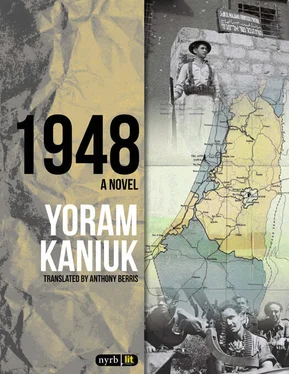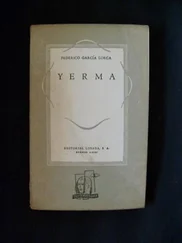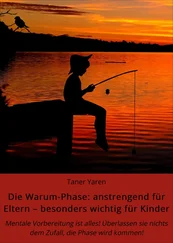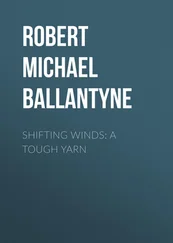I enlisted earlier. A few months earlier, and to this day I wonder if I was a fool, because I was always falling off the bike I’d been given for my bar mitzvah, a red Peugeot when everybody else was riding a Raleigh. And perhaps I’d banged my head because I’d look at every pretty girl walking down the street, and even at those who weren’t pretty — what did I know about girls’ beauty — and it was dangerous, and I fell.
We were in Jerusalem and Bab el-Wad. Unlike other units of kibbutzniks and enlisted training groups and Palmach tents and songs through the night, while we had a few kibbutzniks who had finished school, most of us were peasants from all kinds of backwaters around the country: the rural villages, Makhloul, Shipur Hayam, Kfar Malal, Kfar Yehezkel, Haifa, Kfar Sava, Nahalal, Musrara. We snuck into all kinds of places, we didn’t have a pot to piss in, and we marched and sang about how we’d die in Bab el-Wad. We sang yearningly and with mental fortitude. Putzes that we were, we really thought it would be great to die in Bab el-Wad, and we imagined how they’d shoot us with armor-piercing bullets.
While we actually were handsome, tousle-headed youngsters, smart we were not. Smart people don’t go off to die by choice when they’re seventeen, eighteen, or even twenty years old. Smart people prefer actual countries over dreamed ones. Smart people don’t try to establish new countries in hamsin heat waves in a country full of native Arabs, and surrounded by Arab countries that view them as malevolent foreigners.
I came to the battles and to death straight from the Palyam’s Course No. 9, where we learned to swim, tie knots, and sail boats. On the course I took part in a grand total of one firing-range session in the sand dunes, and after it — right into the war. After the first massacre at Hulda I knew more about war than my commanders. You see, you’ve got to be a crazy youngster to fight a suicidal war for someone you don’t know and for something about which you haven’t the faintest idea. Only after the war were we to discover, and not always sympathetically, that we had established a state for the dead who would not live in it.
One day a man was standing at the door of our apartment on Ben-Yehuda Street. He didn’t ring the doorbell but banged loudly on the door. I looked through the peephole and didn’t see anyone. I strained, and a moment later a man whose face looked squashed appeared in the peephole. I was alarmed and opened the door for him. He stood erect. Beforehand, when I didn’t see him, he had evidently been bending down. He wore a faded blue peaked cap askew on his head. He looked pale. His eyes were lifeless. When he recognized me, his mouth twisted in a kind of anger, but at the same time there was an impish twinkle in his eyes, an impish-gloomy twinkle, like I’d once seen on the face of a boy standing with his hands raised in a film about the Warsaw ghetto. With his wretched impishness he seemed both defeated yet strong. His eyes half closed, and with a sudden movement, as if he were trying to hide beneath the small doormat, he knelt on the floor like a dog.
Miss Gross the English teacher, who had just finished her second shave of the day, heard the noise. She opened her door, which adjoined ours, and on seeing the man she seemed threatened and shouted, “I told you the Nazis would come!” and as usual when the Nazis came, she quickly hid in the electrical cabinet in the building’s entrance downstairs. Her father had been a lion hunter in Africa for zoos in Germany. He was beaten to death on Kristallnacht, when he had hidden in a big electrical cabinet in a restaurant on Fassane Strasse.
The man in the doorway turned his head toward her and fixed her with a brief, evil look, and I saw the blood drain from her cheeks. His half-closed eyes followed her as she hurried downstairs, but then she changed her mind and didn’t go down as far as the electrical cabinet but came back up and fled into her apartment to stand on her balcony overlooking the sea and want, again and again, to swim to Berlin.
The man’s eyes opened fully and he got up from the floor, and with an even more downcast look roughly asked me if I was the sohn of “the bastard.” I said I’m Moshe’s son. He said, That’s what I asked, boy. And Yiddish you surely kennen* . I said I didn’t. He said, The first thing in this land here was to kill the Jews mehr than they were killed there. I said I was sorry I don’t speak Yiddish, and he smiled sweetly and said, You’re not, but tell me, in your traumen* don’t you dream in Yiddish? Because a Jew cannot dream in anything but Yiddish and cannot count in another language. I said I don’t speak Yiddish and I dream in Hebrew and count in Hebrew, and he said, Don’t worry, when you die you’ll die in Yiddish. Every Jew when he dies will die in Yiddish. Hebrew is a language of Arabs masquerading as Jews.
He continued in his funny accent, Hebrew Ich kennen only a little, I learned in your Moshe’s Tarnopol, and I say “ hafeytz ” for “want” and you won’t say anything because you say “ roytzeh* ,” and we’ll see who laughs last or first, but your bastard of a father’s bastard Deutsch I will not speak. And anyway, where is he? I said that he isn’t a bastard, and he said, And how he’s a bastard, and he shouted, Listen, don’t be so froilich* . I replied that I’m not happy, and he said, But despite that, a hendshake from me you won’t get, you sabra* bastard, and go already and tell Moshe I’m here.
I asked him who he was so I could tell my father, and he shouted, He’ll know who I am. And surely enough, my father heard the commotion and evidently recognized his voice, and he came out of his room and found the man facing him, and they both froze as if struck by lightning. They looked like waxworks in a profound moment that burst from within them, and they began measuring each other up, and the blank-faced man moved toward my father and halted close to him and then moved away momentarily, as if it were a Rina Nikova ballet I’d once seen with my aunt Esti. Then they fell upon each other and began hitting each other. They really struggled soundlessly, and the shouts could be seen but remained silent, although their mouths were moving and their bodies screamed. Then they shifted into Yiddish, and that was the first time I’d heard my father speak Yiddish and the first time I’d seen him hit someone and the first time I’d seen him hug anyone. He didn’t even hug his wife or us, my sister and me.
My father didn’t even see me. He didn’t glance at me. He looked toward the neighbor’s door and muttered something, and a few moments later they both took a few, almost identical steps back and moved away from each other, and the strange man spat. Then my always well-groomed father, whose clothes were Bohemian, elegant, and handmade by Neumann the tailor, my father who even wore a tie to go to the toilet, that poor dandy, crouched like an animal, took a starched white handkerchief from the pocket of his blue shirt, wiped up the man’s spittle, and afterward carefully refolded the handkerchief and returned it to his pocket. That was my father, who was capable of polishing cakes of soap so they would be cleaner. He drew the man into his room, slamming the door behind them.
They were closeted in my father’s room for a long time. After a while, raised voices were heard and I heard the man shouting in somewhat odd Hebrew, but it was Hebrew intended for my ears. What, Moshe? You don’t vant your uncircumcised son, the shaygetz fon Eretz Yisrael, your not-only-child to hear? Tell me, what about Yoshka? And what about Bomek? And what about Yetka? And that friend, Nathan, of your brother Dov-Ber, who before he disappeared they said he killed some Cossack? And what about Naftuli the poet of “Bo-ee Tzion ve-Sha’alu Shloma”? And my father asked, What, the one who played for the HaKoah Vienna football team? And the man said, And how he played, and wasn’t there a rose of Sharon? And Hassia, and how is it that you haven’t got some heart, a bissel herz ? How Mottele ran away when he went looking for your dear brother in Siberia, and where were you? They search for you in heaven. You’re a bastard, and not because of the Torah because it died there with us when you ran away, but a bastard because of your father, Mordechai, whom you abandoned, Moshe.
Читать дальше












